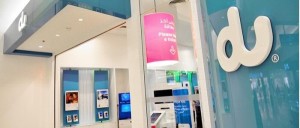 du found itself in hot water last month, when customers reacted furiously to news that the telco was revising its home services prices. But following two days of social media meltdown, du came back to its customers with an option to opt out of the new packages. Tom Paye asks, does this prove the power of social media?
du found itself in hot water last month, when customers reacted furiously to news that the telco was revising its home services prices. But following two days of social media meltdown, du came back to its customers with an option to opt out of the new packages. Tom Paye asks, does this prove the power of social media?
du could easily have ignored all of those angry tweets and Facebook messages. Hundreds may have been using the #dupricehike hashtag to vent their anger about the revised prices, but there was no telling that du would actually listen to its customers.
After all, why would it need to? Most home customers don’t get to choose their broadband providers. Users are simply told which operator is looking after their area or building, and they have to go with it.
But then again, this was a big part of why people were so outraged by the package revisions. Under the new pricing plans, customers signed up to the 8 Mbps ‘Talk and Surf’ package, would see their monthly bills go from Dh199 per month to Dh275 per month — an increase of 37.5 percent. The other home packages that du offers saw similar price rises, and it looked like customers would just have to live with it.
Sure, du said that the price rise was justified with the addition of free calls to UAE landlines, a number of free international minutes, and faster upload speeds, but the response did little to quell the ensuing social media super-storm.
du’s Twitter feed was inundated with angry complaints, with most arguing that they did not want the benefits of the new packages, and would prefer to save cash by sticking to the old ones. Anger also arose from the fact that du hadn’t properly announced the new pricing plans — someone had simply found the revised prices on du’s website.
The situation came to a head when the official du Twitter account issued a particularly blunt response to one disgruntled user. “Hey! If you don’t want to continue with the services, you can cancel your account at one of our stores,” the tweet read. It promptly went viral. And there it was — du had effectively said that people could either swallow the new prices or else live without home broadband.
It could have ended there. Seeing as these unhappy customers were unlikely to disconnect their lines en masse — who’s going to live without Internet just to make a statement? — du could have simply taken a little more flak and let the matter fizzle out.
But the following day, du did something amazing — it responded to its customers with an understanding statement, which concluded with an offer to opt out of the revised packages. Admittedly, customers would have to opt out within three months, or else suffer the new charges, but du had thrown the masses a bone. The person behind that blunt tweet had also been taken off of the social media team, a separate statement said.
The announcement brought home the power of social media with a deafening blow. Under no real obligation, du had decided to reverse a plan that could have made it millions more dirhams — all because it sensed the tide of social media turning against it. The operator’s management clearly thought it was more important to have happy customers than to implement its new plans, and they’re to be applauded for taking this stance.
In a business environment that almost guarantees success, it’s all too easy to fall into the trap of not considering your customers. du almost fell into that trap, but its willingness to take advantage of social media feedback saved the company from developing a bad reputation. After all, even if your customers are forced to use you, it’s always better to make sure they’re happy about it.





